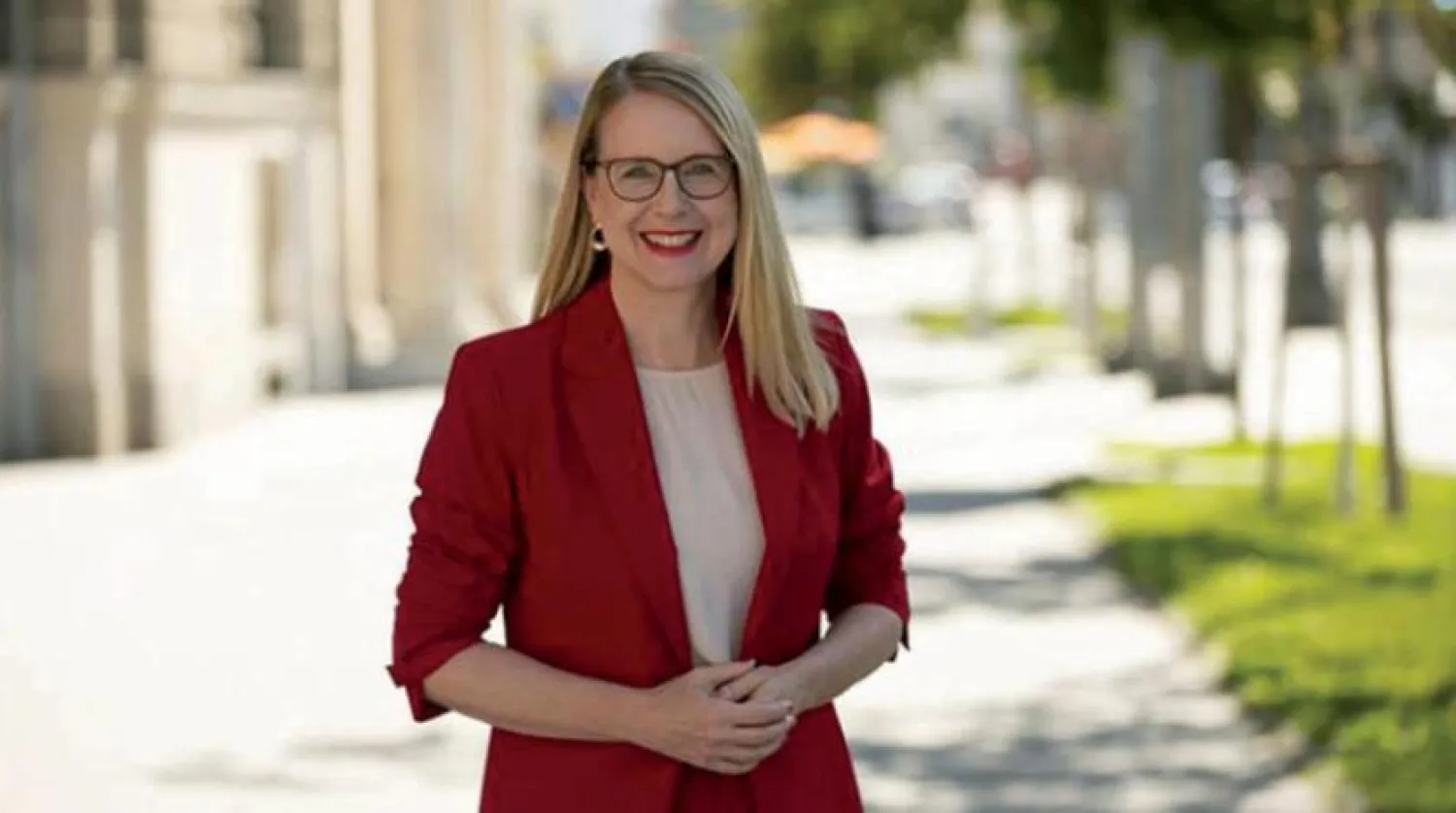Austrian Minister for Digital and Economic Affairs Margarete Schramböck clearly admitted that the current Russian-Ukrainian war has exposed Europe’s urgent need for a roadmap that accommodates economic diversification, especially in the energy sector, to secure its demands.
This need made her visit to Saudi Arabia vital to finding the best way to enhance cooperation between Austria and the Kingdom and achieve what she is looking for in these geopolitical and geospatial conditions.
Speaking to Asharq Al-Awsat, Schramböck said there should be new partnerships and cooperation in the energy sector, noting that Austria is looking to become climate neutral by 2040.
Therefore, her visit to Saudi Arabia is an opportunity to exchange views with Saudi ministers on potential areas of cooperation in the energy sector.
Schramböck revealed that new agreements to boost cooperation and the signing of a memorandum of understanding in the field of environment and water protection are currently under study, noting that this would pave the way for Austrian companies to engage in Saudi Arabia.
As for Saudi-Austrian relations, she confirmed that the Kingdom enjoys an attractive commercial location for Austrian companies, indicating that Riyadh will witness the holding of the eighth session of the Saudi-Austrian Joint Committee, where a huge trade delegation will make contacts with Saudi companies within the framework of a Saudi-Austrian economic forum to deepen existing ties between the two countries. .
According to Schramböck, Austria’s great economic interest in the Saudi market is evident through its 40-member commercial delegation. She pointed out that the delegation is the largest trade mission in the long-term Saudi-Austrian partnership.
She stressed that Saudi Arabia, which has the largest economy in the region, offers excellent opportunities for Austrian companies in many countries over the coming years.
Cooperation fields
“We are looking for new partnerships and cooperation in the tourism sector, which tourism experts plan to pursue this fall... We would also like to intensify cooperation in the energy sector,” Schramböck told Asharq Al-Awsat.
“We look forward to Austria becoming climate neutral by 2040 and a leading country in climate protection by switching to renewable energy as much as possible,” she added.
The minister said she believes there is evidence of the need for new partnerships and cooperation in the energy sector, explaining that investing in green technology makes sense for the environment and the economy as a whole.
Schramböck noted that sustainable hydrogen would be a game-changer in achieving climate neutrality.
“In Athens, we are committed to producing green hydrogen in the long term. However, we will not meet the industry’s demand by ourselves. Cooperation in the hydrogen sector may be mutually beneficial,” she said.
Austrian investments
On the level of joint investments, Schramböck explained that in 2020, Austrian investments in the Kingdom amounted to about 54 million euros, while direct Saudi investments in Austria amounted to about 246 million euros.
According to the minister, the volume of trade exchange of goods and services in 2020 amounted to about 496 million euros. It dropped to about 342 million euros in 2021.
Russian crisis
Regarding geopolitical circumstances related to the Russian-Ukrainian crisis, Schramböck made it clear that her country fully supports Ukraine’s sovereignty and territorial integrity. She voiced the Austrian government’s solidarity with Kyiv and the Ukrainian people, stressing that it condemns Russia’s unjustified military aggression.
Schramböck believes that tightening the European Union’s sanctions against Russia and Belarus is necessary, stressing that her country fully supports them.
Economic losses
The minister went on to say that the Russian-Ukrainian crisis is directly affecting Austrian companies in their trade relations with Russia and Ukraine. There are currently about 650 Austrian companies with local branches in Russia and 200 in Ukraine.
Moreover, about 35,000 to 40,000 jobs are secured in Austria through trade with Russia.
Schramböck stressed that the increase in energy prices would continue.
The hike in prices can already be observed now, she remarked.
She noted that this would affect Austrian households and companies. Nevertheless, she emphasized that the European Union would stand united behind the measures that have been identified, even if they lead to high energy prices and supply chain issues.









